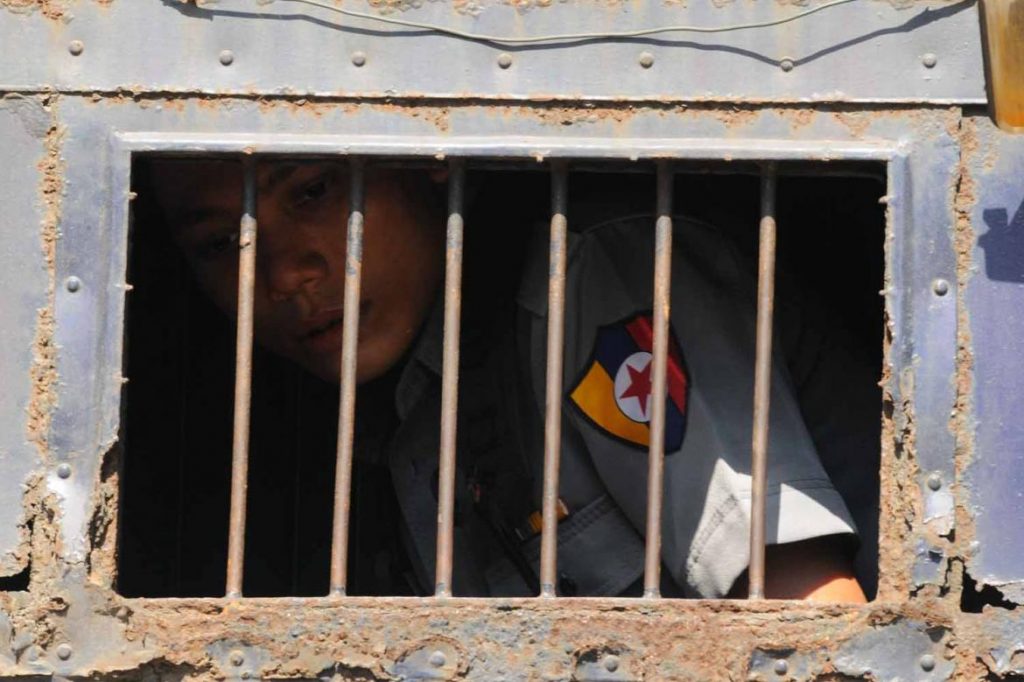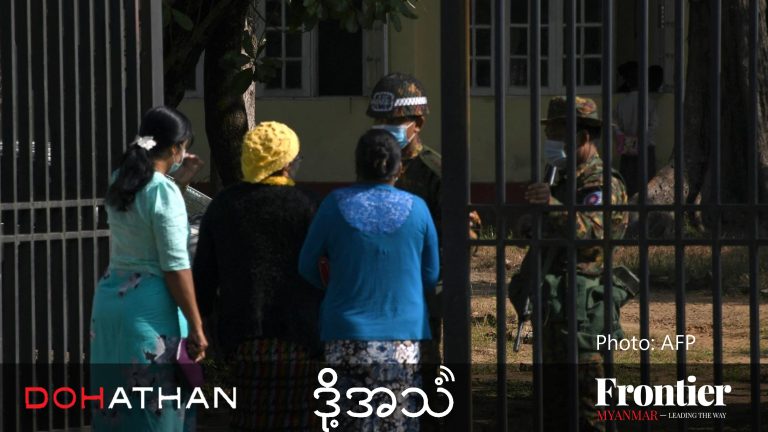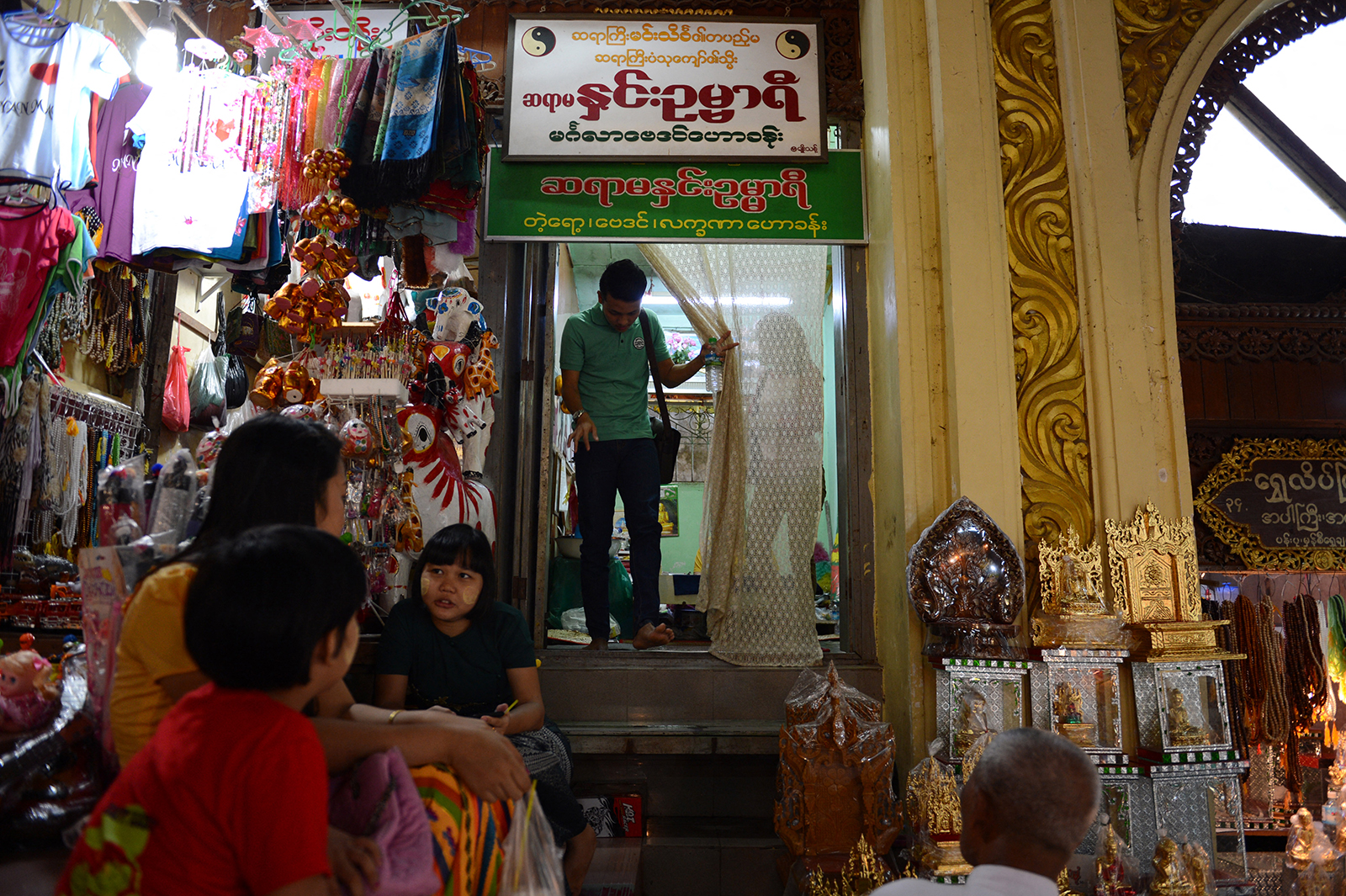Lawyers say translation problems for ethnic minorities who do not speak the dominant language has resulted in miscarriages of justice.
By HTUN KHAING | FRONTIER
IN NOVEMBER 2014, three Tamil-speaking Indian citizens were among a group arrested in Yangon, alongside a British man, accused of being members of a gang that was stealing money from ATMs.
When the case went to court there was a problem with communication: no interpreter. It took weeks for lawyers to find a Tamil-speaking person in Myanmar to interpret for the defendants. After finally finding someone who could translate, they encountered another communication problem: the interpreter was an attendant at a Hindu Tamil temple and had little knowledge of legal terminology.
Such a situation can create challenges, said U Yan Naing, a lawyer who was involved in the case. He cited as an example in the case of the Indian citizens that the translator was unable to differentiate between a witness for the prosecution and a witness for the defence, leaving the defendants confused about how the case was developing.
Lawyers say it is not only foreigners on trial who encounter communication difficulties in court, and that’s hardly surprising. Myanmar is the official language in a nation with 135 officially recognised ethnic groups. Many members of minority groups do not speak Myanmar and the language barrier can be a significant obstacle if they find themselves in court.
Support more independent journalism like this. Sign up to be a Frontier member.
Take, for example, the situation in Rakhine State, where ethnic Rakhine form the majority in an enumerated population of 2,098,807, according to the 2014 census. The other recognised ethnic groups in Rakhine are the Bamar – the nation’s predominant ethnic group – as well as Chin, Mro, Khami, Thet, Daingnet, Maramargyi and Kaman.

Steve Tickner / Frontier
Government surveys show that three-quarters of the township judges in Rakhine are from the Bamar majority, said U Nyein Chan Kyaw, a lawyer in the state capital, Sittwe.
Although there’s no problem for Rakhine who speak Myanmar, it’s difficult for members of other ethnic groups who do not speak the official language, he said.
Rakhine and Myanmar speakers do not understand the languages spoken by some ethnic groups in the state, which can lead to challenges in the legal system. When a case goes to trial, an interpreter accepted by both the defendant and the plaintiff is needed, Nyein Chan Kyaw told Frontier. Difficulties can arise if the interpreter does not understand legal terminology or is unaware of variations in meaning.
Nyein Chan Kyaw said in Rakhine “thut-deh” means “beat” but in Myanmar it means “kill” and a misunderstanding by a Bamar judge in an assault case, for example, could have serious consequences for a defendant.
A similar situation occurs in Tanintharyi Region, where there are Bamar, Kayin, Mon, Rakhine, Shan and Salone (also known as Moken) communities.
Language barriers are often problematic when Kayin are on trial, said U Sa Ayer Win, from the Myeik Lawyer Network, who monitors human rights violations and land grab cases.
He said misunderstandings sometimes arise because the Kayin language has a general term for staff at a court but no specific words for judge, lawyer and a law officer. Sa Ayer Win worries that an inability to provide defendants with interpreters who have a sound knowledge of the law can lead to miscarriages of justice.
Misunderstandings over regional variations in meaning or pronunciation have affected verdicts in Tanintharyi, Sa Ayer Win said. He told Frontier of a case in Myeik where a more lenient sentence was given to the thief of an expensive necklace.
Although there are separate words for “necklace” and “beads” in Myanmar language, in the southern Myanmar dialect there is only a word for the latter. The complainant spoke about the theft of “beads” when in reality she meant the necklace. The court lessened the sentence because they didn’t deem the “beads” to be of a high value.
The difficulty engaging competent interpreters for court cases is a legacy of the decades of suppressing the teaching of ethnic languages by the former junta. One of the reforms of the previous U Thein Sein government was the enactment in February 2015 of the Ethnic Protection Law that gave minorities the right to teach their mother tongue and its literature as long as the activities did not affect national education policy.

Ethnic minority members who do not speak Burmese have faced miscarriages of justices due to translation issues, lawyers say. (Steve Tickner / Frontier)
On November 18, Ethnic Affairs Minister Nai Thet Lwin told the Amyotha Hluttaw that the government would allocate an undisclosed amount of funds for summer school classes in ethnic literature and culture.
“Now, we are allowed to teach ethnic languages to children after school hours,” said Mong Hla Shwe, of the Ta’ang Literature and Cultural Association, one of many such groups established by ethnic minorities.
“Because we lost the right to learn ethnic languages, we find it difficult to translate some legal words. We are providing assistance to ethnic people who are involved in court cases,” he told Frontier.
Daw Dwe Bu, a lawyer in the Kachin State capital, Myitkyina, and a former member of the Pyithu Hluttaw said another problem in ethnic minority areas apart from language barriers was the poor calibre of some public servants.
“The government used to send officials accused of wrong-doing to remote ethnic areas as punishment; this needs to change… The government should instead give priority to deploying in remote areas officials of local origin who speak the local language,” Dwe Bu said, adding that such appointments would be appreciated by local residents and the official, whose task would be easier than an “outsider” because of better understanding of the community.
She expressed concern about the risk of unsound court verdicts based on communication misunderstandings.
“When witnesses don’t know the language, it has bad implications for the accused.”







